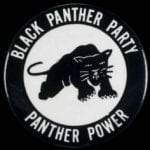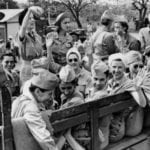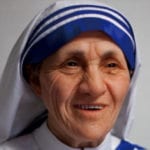 Mysteries
Mysteries  Mysteries
Mysteries  History
History 10 Surprising Stories About the Texas Rangers
 Humans
Humans 10 Philosophers Who Were Driven Mad by Their Own Theories
 Miscellaneous
Miscellaneous 10 Video-Game-Worthy Weapons and Armors from History
 Weird Stuff
Weird Stuff 10 Psychics Who Accurately Predicted Wartime Events
 The Arts
The Arts 10 Pieces of Art Inspired by a Broken Heart
 Health
Health 10 Science Fiction-Sounding New Medical Treatments
 History
History 10 Surprising Facts About the Father of Submarine Warfare
 Space
Space Ten Astonishing New Insights into Alien Worlds
 Weird Stuff
Weird Stuff 10 Bizarre Summer Solstice Rituals Still Practiced Today
 Mysteries
Mysteries Top 10 Haunting Facts About the Ghost Ship MV Alta
 History
History 10 Surprising Stories About the Texas Rangers
 Humans
Humans 10 Philosophers Who Were Driven Mad by Their Own Theories
Who's Behind Listverse?

Jamie Frater
Head Editor
Jamie founded Listverse due to an insatiable desire to share fascinating, obscure, and bizarre facts. He has been a guest speaker on numerous national radio and television stations and is a five time published author.
More About Us Miscellaneous
Miscellaneous 10 Video-Game-Worthy Weapons and Armors from History
 Weird Stuff
Weird Stuff 10 Psychics Who Accurately Predicted Wartime Events
 The Arts
The Arts 10 Pieces of Art Inspired by a Broken Heart
 Health
Health 10 Science Fiction-Sounding New Medical Treatments
 History
History 10 Surprising Facts About the Father of Submarine Warfare
 Space
Space Ten Astonishing New Insights into Alien Worlds
 Weird Stuff
Weird Stuff 10 Bizarre Summer Solstice Rituals Still Practiced Today
10 Lesser-Known Members Of The Kim Family Dynasty
North Korea, or the Democratic People’s Republic of Korea, is notorious as being the only successful example of a communist state that has gone through three generations of hereditary ruling. Power passed from the anti-Japanese guerrilla fighter Kim Il Sung to film-loving sociopath Kim Jong Il, who would then pass it on to his well-fed son, Kim Jong Un. Each of these leaders has been well-known and satirized worldwide, but there have been other members of the Kim family dynasty over the years. They have usually come to unceremonious political or existential ends.
10 Kim Jong Chul
Kim Jong Chul is the elder brother of North Korean leader Kim Jong Un and was passed over for the leadership because his father apparently considered him too effeminate. The Kim family chef Kenji Fujimoto wrote: “The older brother, Jong Chul, had the warm heart of a girl.” As a child, educated undercover in Switzerland, he wrote a poem which accorded with some North Korean values more than others:
If I had my ideal world I would not allow weapons and atom bombs any more.
I would destroy all terrorists with the Hollywood star Jean-Claude van Damme.
I would make people stop taking drugs.
I would even destroy the word DRUG to make people forget about it.
I would make everybody get good jobs.
Everybody would be happy: no more war, no more dying, no more crying.
Then I would make a rule (Do not believe in God.) God doesn’t help and there is no God.
I would make people believe in themselves, and they would work hard for their happiness and success waiting in their future.
I would make the whole world use only one language, which would be Korean, and I would make all people have the same amount of money: no rich people, no poor people.
Only in my ideal world can the people have freedom and live very happily.
As an adult, he has been most notorious in Western media for his devotion to British singer-songwriter Eric Clapton, having been spotted at concerts in Singapore, Germany, and the UK. According to Wikileaks’s release of US diplomatic cables, North Korea even invited Clapton to perform in the country, but he rebuffed them. South Korean news reports in May 2015 suggested that Kim Jong Chul had gone missing after attending two Clapton concerts in London. While he was expected to travel back from London to Pyongyang via Moscow and Beijing, his name was missing from the London-Moscow flight manifest, and he never appeared in Beijing.
9 Kim Jong Nam
Kim Jong Nam was Kim Jong Il’s first son, born of an illicit relationship with Sung Hye Rim, a film star mistress six years his elder. She was the wife of one of his old school chums at the time. Sung’s father had been a wealthy landlord, so she was considered a member of the “hostile class,” an unsuitable consort for Kim Jong Il, but she became pregnant and gave birth regardless. The regime reacted with characteristic violence, covering up the potential scandal by rounding up everyone who ever knew Song Hye Rim and sending them to prison or concentration camps. She eventually began to suffer mental and emotional problems from the stress of the deception and its aftermath.
Kim Jong Nam was eventually revealed to his grandfather Kim Il Sung, who was angry at first but was soon won over by the pudgy child. Jong Nam was raised in the lap of luxury, becoming a fan of Anne of Green Gables and South Korean comedians before being sent to school in Switzerland when he turned 10. As a young man, there were reports of a violent streak, including an incident where he shot up the roof of a luxury hotel when a taxi driver stole his parking spot.
His rise to prominence was irrevocably stalled when he was deported from Japan for illegal entry. He was caught with a counterfeit Dominican passport bearing the name Pang Xiong (meaning “fat bear,” apparently Kim Jong Nam’s Chinese nickname) all in an apparent attempt to visit Tokyo Disneyland with his son. The embarrassment that this caused the regime (and the dubious class background of his mother) excluded Kim Jong Nam from serious consideration as a potential leader, and he has lived in exile for years, bouncing between Macau, mainland China, Singapore, and Malaysia. He is notorious for his liberal attitude; in 2012, he told a Japanese reporter his criticisms of the regime and his predictions of its imminent demise.
8 Kim Han Sol
The son of fallen prince Kim Jong Nam, Kim Han Sol was born in 1995 and would grow up to attend the School of the Nations in Macau before entering a boarding school in Bosnia-Herzegovina. His Facebook page came to the attention of the South Korean media in 2011, which developed a somewhat lurid fascination with the exiled princeling with bleached-blond hair and a penchant for earrings and necklaces. Kim Han Sol was forced to scramble to delete his Internet footprint as more media attention was poured on him. He had previously been active on two Twitter accounts, a YouTube account, a Blogger account, and a WordPress account called “Pimp Your Grades” that was dedicated to giving advice on study techniques and passing exams.
In 2012, he gave an unprecedented interview with journalist and former UN Undersecretary General Elisabeth Rehn for Finnish TV channel YLE, in which he expressed hopes for the reunification of North and South Korea and openly called his uncle Kim Jong Un a dictator. After his other uncle Chang Song Thaek was purged in 2013, he was placed under police protection at his university in France. Since then, he has been trying to keep a low profile and to avoid talking to the South Korean media, probably because going to college is hard enough without a camera crew following you around trying to make you say something critical about your uncle’s totalitarian regime.
7 Ko Yong Hui
Ko Yong Hui was born in Osaka in 1952. She was the daughter of Korean-Japanese judo master Ko Tae Mun, who came from Jeju Island but became a judo master operating in Japan under the name Daidosan. His skills would eventually help him move the family to Pyongyang in 1961, as part of North Korean efforts to repatriate talented Koreans away from Japan. While only a minor judo master in Japan, he would become known as the father of North Korean judo. With the status that her family enjoyed in their new home, Ko Yong Hui was able to join the prestigious Mansudae Dance Troupe. Here, she caught the eye of Kim Jong Il and would go on to become his mistress, in spite of being from the lowest levels of the North Korean class system.
She would have three children by Kim Jong Il—future leader Kim Jong Un, elder brother Kim Jong Chol, and sister Kim Yo Jong. Due to her politically dubious lineage, the spin machine worked overtime to create a legend of her father fighting the revolutionary fight in Jeju before fleeing to Japan and eventually the embrace of Kim Il Sung. Nevertheless, when she entered the public eye, her birthplace was covered up, while her profile as “respected mother” rose. Ko Yong Hui would succumb to cancer in a Paris hospital in 2004, and she was shipped back to Pyongyang in an expensive coffin.
In 2011, North Korea produced a documentary about Ko Yong Hui entitled The Beloved Mother of the Great Songun Korea, although she was mostly referred to in the film by a pseudonym, Lee Un Sil, or often simply as “Our Respected Mother.” The canonization of Ko Yong Hui was intended to bolster the political position of her son Jong Un as he rose to the leadership. Among her titles, the most telling and long-winded one has to be “The Respected Mother who is the Most Faithful and Loyal ‘Subject’ to the Dear Leader Comrade Supreme Commander.”
6 Kim Yo Jong
Like her older brother, Kim Yo Jong was born to Kim Jong Il’s mistress Ko Yong Hui, and she was his youngest child. She grew up alongside Kim Jong Un in Pyongyang and Switzerland, allegedly getting along well with her brother. Before 2008, her whereabouts were unknown, but she started to slowly make public appearances alongside her brother after that point. She came to the attention of the foreign media in October 2014 during a mysterious period of absence by Kim Jong Un. Some outside observers speculated that her political role could be significant and growing, possibly even a potential leader figure within the regime. The following month, she was made deputy director of the Korean Workers’ Party.
The North Korean system relies on having a Kim in the center at all times, and if Kim Jong Un was to be indisposed, Kim Yo Jong is in the best position to occupy that role, due to the political exile of her other siblings. In January 2015, she is said to have married a son of party secretary Choe Ryong Hae, a key political figure of the previous generation. At around the same time, an error in Google’s search algorithm displayed a Photoshopped image of Kim Jong Un as a female. Taken from a Latin American social media site, it was billed as being a photograph of Kim Yo Jong. In spite of that minor embarrassment, Kim Yo Jong’s star has continued to rise. She ascended to the top of the Propaganda Department in June 2015.
5 Kim Pyong Il
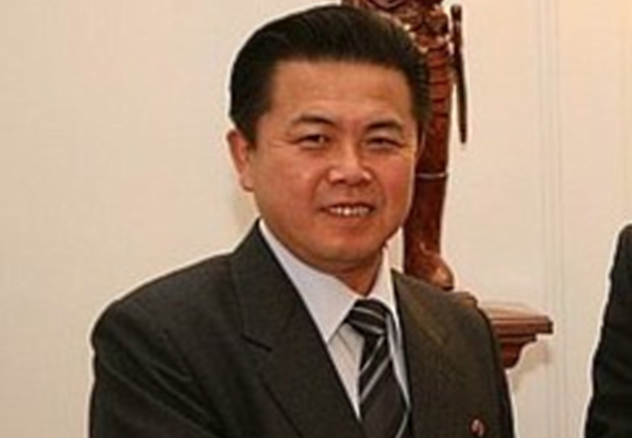
Half brother and stepbrother to former North Korean leader Kim Jong Il, Kim Pyong Il was once considered a candidate for leadership of the country. As a youth, he learned to speak Engish in Malta and how to fly light aircraft in East Germany, later becoming a member of his father’s military bodyguard alongside his half brother. Pyong Il was quickly promoted through the ranks but began to live an extravagant lifestyle. Frequently throwing luxurious parties parties at the house of a crony, he gave out watches engraved with his father’s name while his guests shouted, “Long live Kim Pyong Il!” Kim Jong Il got wind of this through spies in 1978 and sent a report to his father, who angrily fired Pyong Il.
Outmaneuvered and left with no political support, Pyong Il asked to be sent abroad and was thus dispatched into diplomatic exile in Finland, Bulgaria, and Hungary. He has been serving as North Korea’s ambassador to Poland since 1998. It is believed that Pyong Il’s resemblance to his father was one of the main reasons that he needed to be politically neutralized if Kim Jong Il was ever going to have a chance at the throne.
Now, his partying days are over. Kim Pyong Il keeps a low profile, avoiding interviews and the diplomatic social scene, only occasionally surfacing at the Algerian, Russian, and Syrian embassies. He is believed to be under close surveillance by the security services of both North and South Korea.
4 Kim Jong Suk
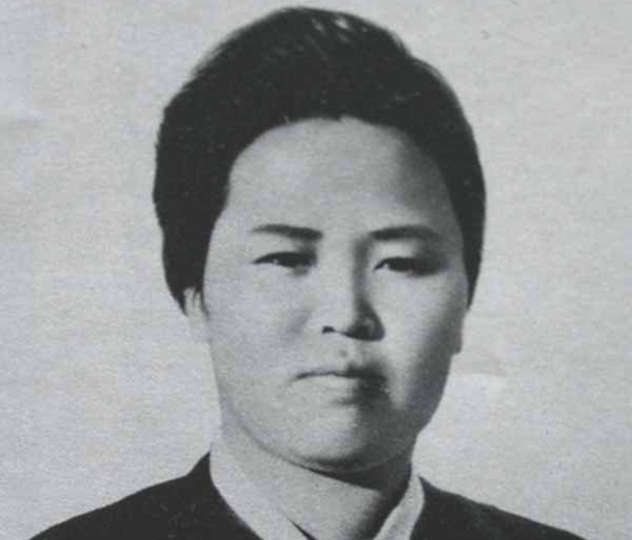
Born in 1917 to poor farmers in North Korea’s North Hamgyong province, Kim Jong Suk relocated with her mother to northeastern China to look for her father, who had passed away. After being orphaned in 1934 by the death of her mother, she joined Kim Il Sung’s guerrilla unit, where she was charged with tasks such as cooking and cleaning. She spent 18 months incarcerated by the Japanese but was released and rejoined the partisans, fleeing to Siberia and marrying Kim Il Sung in 1940. Kim Il Sung was said to have been impressed by her beauty and commitment to the cause, even crediting her with saving his life by beating back an enemy attempt to overrun the guerrilla camp.
In Russia, she gave birth to three children—Kim Jong Il, Kim Kyong Hui, and Kim Man Il, who later died in a drowning accident. She was apparently popular with the Soviet authorities, who called her Vera. After her husband was installed as the leader of North Korea, she lived as first lady for three years before succumbing to complications from giving birth to a stillborn child in 1949. Following her death, she became the subject of a personality cult based on a somewhat fanciful biography.
Incorporating elements from the propaganda film The Flower-Selling Girl and revolutionary musical The Sea of Blood, Kim Jong Suk’s life story was painted as a perfect tale of revolutionary struggle. She was said to be both a passionate advocate of Kim Il Sung’s communist policies behind enemy lines and a benevolent, mother-like figure for the embattled partisans. She thus became a symbol of North Korea’s political mythology and was known by many names, including “Sacred Mother of the Revolution” and “Mother of Mount Paektu.” Today, Kim Jong Suk is considered one of the most significant revolutionary martyrs and is revered in North Korean historiography.
3 Kim Kyong Hui
The only daughter of Kim Il Sung and his first wife Kim Jong Suk, Kim Kyong Hui was Kim Jong Il’s sister. Since the 1970s, she was an active political figure within the North Korean regime alongside her husband, Chang Song Thaek. In the 1980s, she was a manager in a department engaged in everything from tobacco, narcotics, and weapons trafficking to financial intelligence operations. She is said to have been an intermediary between her brother and the rest of the regime, maintaining personal contacts and observing the loyalty of key officials, often by getting them horribly drunk at mandatory social gatherings.
Kim Kyong Hui was tapped to play an important role in the succession to Kim Jong Un, being made a four-star general alongside her nephew when he appeared in the media for the first time. She was considered vital in both maintaining the shift of power to the next generation and also for protecting her husband from his political enemies. In 2013, Kim Kyong Hui was considered so influential that the Atlantic confidently proclaimed: “Both Koreas are ruled by women.”
However, deteriorating health and the shocking execution of her husband quickly forced her out of the limelight, perhaps as another casualty of Kim Jong Un’s consolidation of personal power. In 2015, rumors circulated that Kim Jong Un had had his aunt poisoned, but South Korean intelligence sources within the regime insist that she is still alive, undergoing medical treatment for a nervous condition. Kim Jong Un reportedly “loves his aunt,” but since he had her husband unceremoniously executed, Kim Kyong Hui has reportedly become dependent on alcohol and prone to nervous breakdowns.
2 Kim Yong Ju
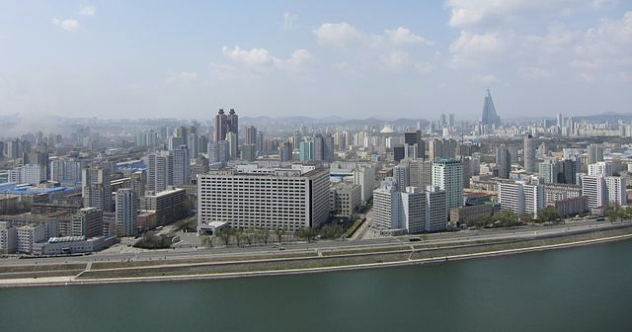
The younger brother of North Korea’s first leader Kim Il Sung, Kim Yong Ju was once considered to be the most likely candidate for succession. There are conflicting accounts of Yong Ju’s childhood. Kim Il Sung claimed that his brother had been relentlessly hounded by Japanese search parties and was forced to roam around Manchuria and China under a false name. Other accounts have Yong Ju serving as a guerrilla for a short time before being sent to China to work in a Japanese store when his brother told him that he had to survive and carry on the family name. He supposedly ended up in Hawaii during the 1940s before returning to North Korea.
He is rumored to have sired many children, many of whom grew to take up positions in the regime, and was an important political figure, ranking as number six in the regime by 1970. Foreign analysts saw him as the most plausible candidate to take over in the event of Kim Il Sung’s death. He is said to have received support for a leadership bid from Kim Il Sung’s second wife, Kim Song Ae, who apparently hoped that Yong Ju, as a member of the older generation, could serve in a transitional role while her own son, Kim Pyong Il, came of age.
In the end, however, he would be outmaneuvered by his nephew and may never have even been seriously considered for leadership due to his age. He disappeared from political view in 1976. In 1993, he reemerged as a full member of the Politburo. Some claim that he never had serious intentions to claim the throne, and his disappearance was due to ill health. That may be true, but he remains alive today at the age of 95 with a minor political role.
1 Chang Song Thaek
Kim Jong Un’s uncle, Chang Song Thaek met Kim Jong Il’s sister Kim Kyung Hui while studying at Kim Il Sung University. A lackluster student, he impressed Kyung Hui with his singing, dancing, and accordion skills as the leader of a musical troupe, and a relationship blossomed. Kim Il Sung opposed the relationship, and Chang Song Thaek was expelled and transferred to the Wonsan University of Economics, but Kim Kyong Hui continued the relationship, and they were later married. He began as a minor bureaucrat in the 1970s and is said to have been responsible for coming up with the idea of using North Korean diplomats as a way of earning foreign currency through legitimate and illicit means.
He was expelled from the central party in the late 1970s and spent time working at the Chollima Ironworks, where he sustained burns in an industrial accident, but was rehabilitated in the 1980s. His star would continue to rise until he was placed in political exile for a second time from 2003–06, allegedly for factionalism and power-hungriness. His second rehabilitation gave him a reputation as a political survivor, and he was well-placed as one of the powers behind the throne during the transfer of power to Kim Jong Un. Many outside observers believed that he was the true power behind the throne, which made his third and final downfall a shock to many.
In late 2013, Chang Song Thaek was arrested and charged with “anti-party, counter-revolutionary factional acts.” Among his crimes, he was accused of “behaving arrogantly and insolently as unwillingly standing up from his seat and half-heartedly clapping” during Kim Jong Un’s election as vice president, “instructing his stooges to sell coal and other precious underground resources at random, leaving his confidants saddled with huge debts, deceived by brokers,” being “corrupt and decadent,” and even “distributing all sorts of pornographic pictures among his confidants.”
Many of his political supporters were purged and executed, and Chang’s name was scrubbed from official websites and documentaries about the leadership. After being forced to confess to plotting a coup, Chang was summarily executed. Lurid rumors of Chang’s execution being carried out by 120 starving dogs swirled afterward, but they were ultimately traced to a Hong Kong–based satirist. Analysts believe that he was most likely executed by firing squad, as not even marrying into the royal family will keep you safe in North Korea.
David Tormsen once drank too much whiskey and passed out in a Pyongyang hotel hallway. He doubts he’s getting another visa. Email him at [email protected].
